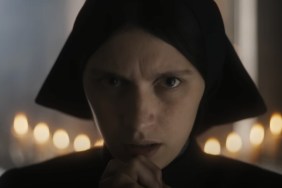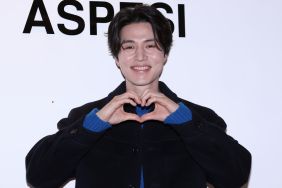
The focus for Lust, Caution has been lost amidst far too much talk about explicit sex scenes and an NC-17 rating. By this I mean the wrong questions are being asked in interviews with director Ang Lee as he has made a politically charged film that happens to have rather explicit sex portrayed by the two lead actors Tony Leung and newcomer Tang Wei. So, when I learned I was going to have the chance to sit down with the director and chat about the film I scoured the Net to see what had already been said.
You have to remember, he has talked this film to death. I was talking to him after his film had already been shown at the Venice Film Festival where it won the Golden Lion. It opened to record breaking numbers in Hong Kong and Taipei where it was shown unedited and it was already in one theater over in NYC where it cashed in with $63,918. I fully expected everything to have been said and done. Guess what, it wasn’t.
I didn’t want to talk about how he was working with Tony Leung. I didn’t want to talk about working with Tang Wei in her first film. We already know that yes, the sex was real, let’s move on.
Where the interviews are lacking are not in asking how it was to make the film, but the results of the film being made. Lust, Caution is a political movie no matter how you look at it. It’s political in the fact that it was shot in China. It is political in the fact that Lee is portraying a time in China when his parents actually lived there prior to fleeing in 1949 following the communist victory. It is political in the fact that it earned an NC-17 rating while the ultra-violent Eastern Promises sits comfortably with an R-rating.

As Lee tells me, “It is the first time [anyone has been] allowed to film that regime.” These are important details not to be overlooked and he has something to say about it all. Unfortunately, my 15 minutes with him weren’t enough. I wanted 45 minutes like I just had with Matt Carnahan, especially when the subject matter is this interesting.
We began with the political side of things and I tip-toed around the subject for a couple of reasons. First off I am a historical idiot as my brain can only hold the minute amount fed to it just prior to the interview. Suffice to say I know that communist China isn’t going to be the first country to step up and fully embrace a film telling the story of Wang Jiazhi (Tang), part of a group of Chinese students bent on assassinating Mr. Yee (Leung), a Chinese collaborator with the Japanese occupation in Shanghai during World War II. Yee heads the secret police and when Wang becomes his lover the film takes on a whole new meaning.
When asked how he felt the film would be received in China, and by China I meant China, not just the community, he replied, “I don’t know, I think they are yearning for a movie like this.”
The interesting thing about the film is that the communist aspect is never confronted head on, and Lee admits to leaving communism out of the story but the fact the film is more than just a story of a fateful romance is not lost on the director.
“I am aware that this is highly political material, not only in the political backdrop, but the essence of the point of view, the view of the writer Eileen Chang,” he said. “There’s a political aspect to it, [Tang Wei] is watching a glorious war of patriotism from a female point of view – a sexual point of view. That’s inevitably political. I am loyal to [Chang’s] writing, but I am not trying to be an advocate of anything, I just found it interesting.”
While I am sure he is not trying to be intentionally political due to how subtle most of the politics in the film actually are, I could only help but wonder where he found the balance between revealing political agendas and the torrid romance.
“As far as I am concerned a lot of my movies are political,” Lee said, “but I treat them more like one inevitable element in our lives. It’s life I am portraying. So I am not consciously making a political movie, like the communist movies, to serve a political purpose. It is the other way around, if there are political elements in the story I incorporate that, but this one is really a love story.”










